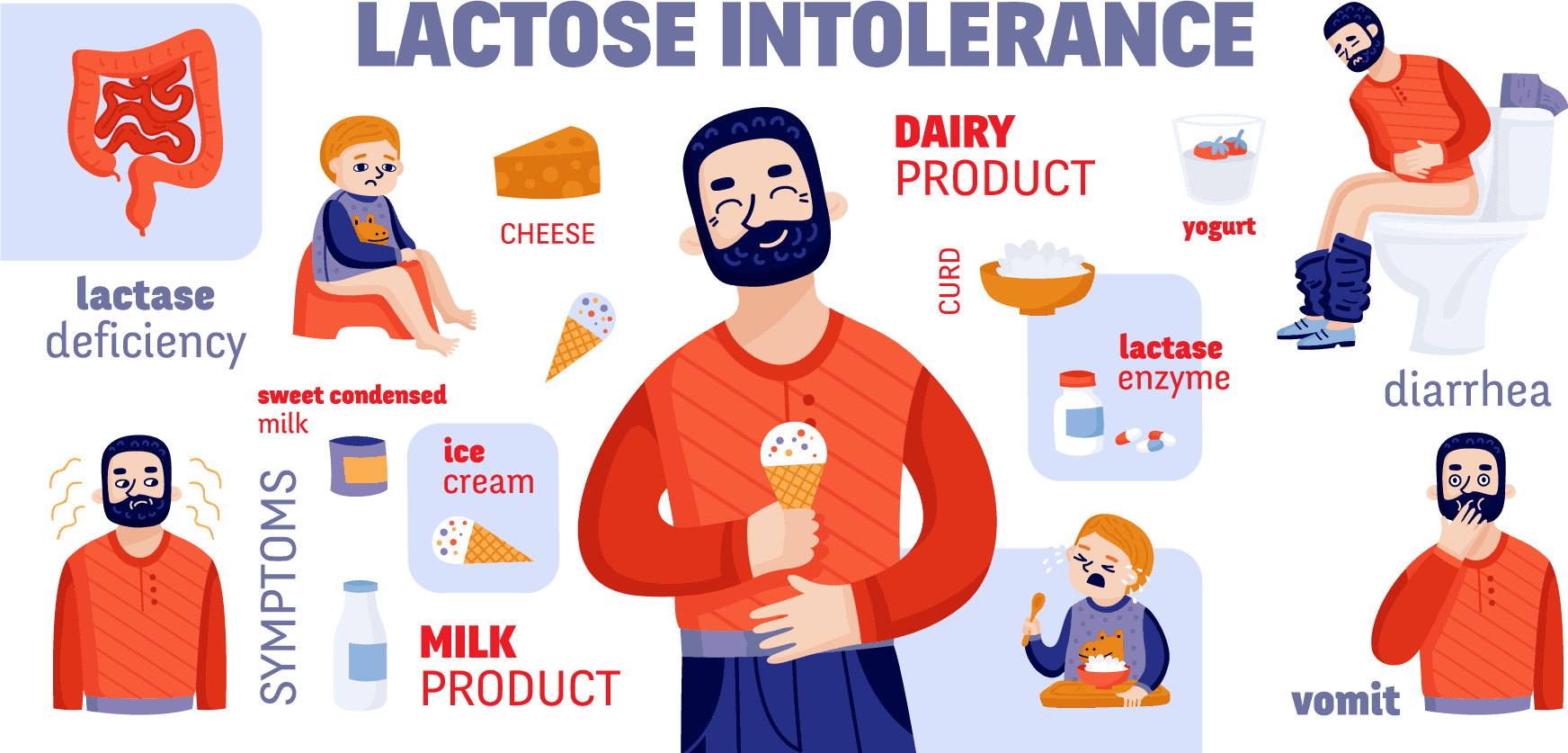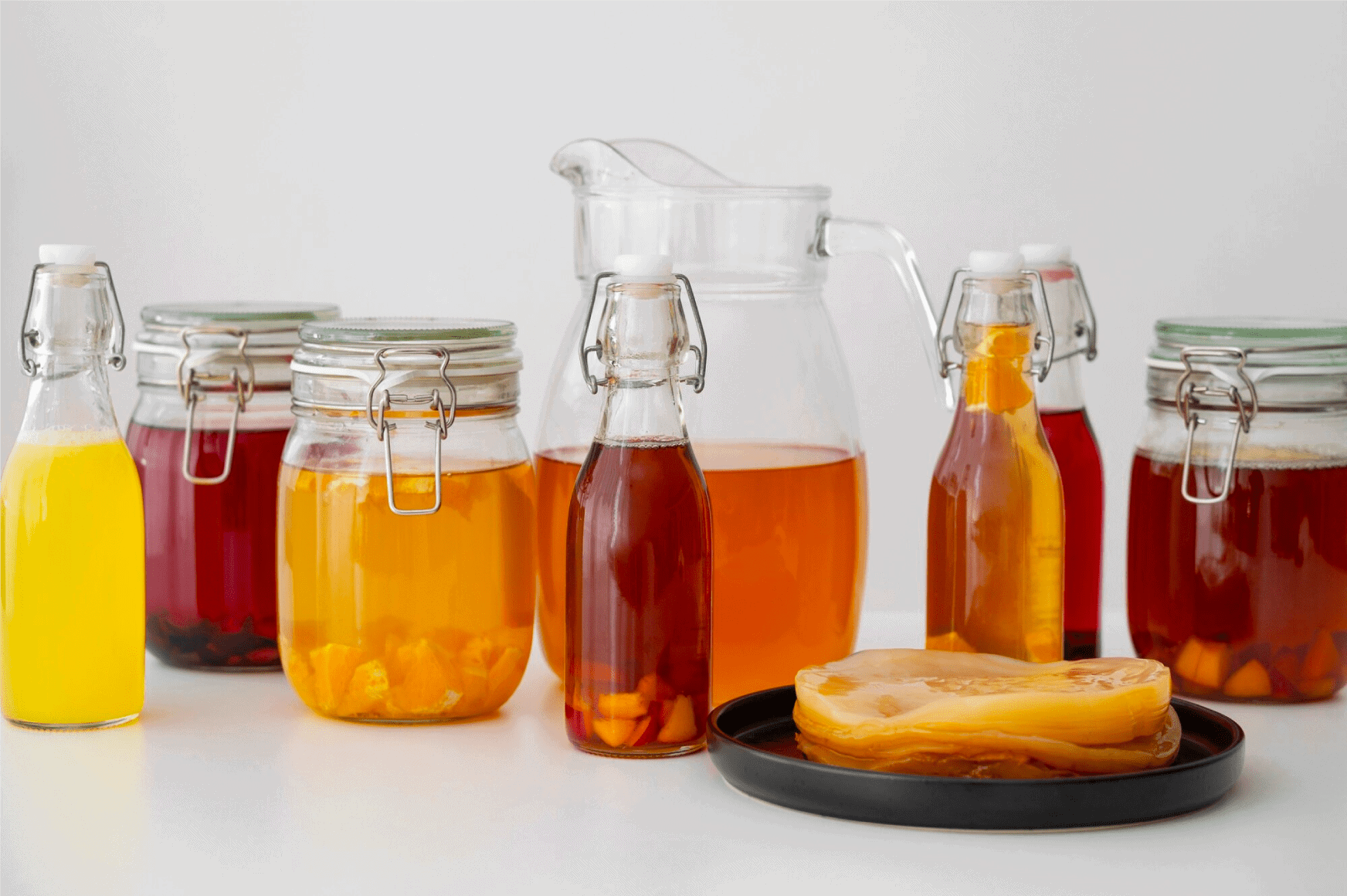If you're lactose intolerant and considering taking probiotics, it's important to choose probiotic supplements or foods that are lactose-free or low in lactose.
01. Lactose Intolerant?
Let’s bump into it! Lactose intolerance is a condition affecting the body's ability to digest lactose, a sugar found in milk and dairy products. Did you know? After childhood, the ability of the human population to digest lactose declines by about 65 percent.
02. Symptoms
Lactose can result in symptoms including bloating, gas, stomach pain, diarrhoea, and nausea if it is not effectively broken down. Usually, these signs and symptoms appear a few hours after consuming lactose-containing meals or drinks.
enter kombucha
Kombucha is a fermented tea made from a symbiotic colony of bacteria and yeast (SCOBY) colony that transforms sugars into beneficial organic acids, vitamins, enzymes, and probiotics. This probiotic power makes it an appealing option for lactose intolerant individuals.
Probiotics are beneficial bacteria that promote a healthy gut environment. They help restore balance in the digestive system and improve overall digestion. For those with lactose intolerance, specific strains of probiotics found in kombucha, such as Lactobacillus and Bifidobacterium, can aid in breaking down lactose and reduce symptoms associated with its consumption. You might feel better digestion and less discomfort if you incorporate these probiotics into your diet through kombucha.
Reference
Sahu, L., & Panda, S. (2021). Kefir, kombucha, and sour beers. 287–307. https://doi.org/10.1016/b978-0-12-818588-9.00008-5
Vesa, T. H., Marteau, P., & Korpela, R. (2000). Lactose intolerance. Journal of the American College of Nutrition, 19(sup2), 165S-175S.
This article is written by:
Muhammad Danish Zuhair bin Mohd Asmadee
Citra Kesom’s Internship Student





